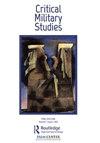“促成后殖民时期的马来西亚:当地精英如何塑造科博尔德委员会,1961-63年”
Q1 Arts and Humanities
引用次数: 0
摘要
沙巴的非殖民化和随后与马来西亚的合并充满了不确定性。1962年在英属婆罗洲成立的科博尔德调查委员会加剧了东南亚地区的紧张局势,引发了新殖民主义的指控。虽然正统学者认为,该委员会提供了一个决定性的公众舆论的横截面,但对档案材料的新分析表明,其结果受到后勤和功能限制的影响。通过恢复关键的地方声音和从档案中理清委员会的附录,本文展示了调查如何成为当地精英进步和英马来亚地缘政治议程的工具,而不是透明的民主合法化。此外,它还认为,调查的先发制人(而不是事后)性质暴露了其政治潜力。调查结果的不确定性导致许多人认为沙巴公众没有能力决定自己的未来,这促使英国和马来亚在很大程度上不顾公众意见推进马来西亚计划。随后,马来西亚的成立加剧了与邻国关系的恶化,并引发了一段明显的地缘政治不稳定时期。然而,本文认为,该委员会的一个关键的、未被充分研究的结果是地方精英声音的结晶。许多精英——传统的首领和地方权力经纪人——声称代表成千上万的追随者,因此利用委员会在后殖民舞台上巩固政治影响力。通过揭示帝国末期的殖民政治手段,本文为理解一系列同源的非殖民化经验提供了有价值的细微差别和可移植的方法。关键词:先发制人的调查;当地精英;非殖民化;殖民委员会;沙巴披露声明;本文章由计算机程序翻译,如有差异,请以英文原文为准。
‘Brokering a postcolonial Malaysia: how local elites shaped the Cobbold Commission, 1961–63’
ABSTRACTSabah’s decolonization and subsequent merger with Malaysia was fraught with uncertainty. The 1962 Cobbold Commission of Enquiry in British Borneo aggravated regional tensions in Southeast Asia and sparked allegations of neo-colonialism. While Orthodox scholarship argues that the commission delivered a decisive cross-section of public opinion, fresh analysis of archival material indicates that its outcomes were compromised by logistical and functional limitations. Through recovering key local voices and disentangling commission addenda from the archive, this paper shows how the inquiry became a vehicle for local elite advancement and Anglo-Malayan geopolitical agenda, rather than transparent democratic legitimation. Furthermore, it contends that the pre-emptive (rather than post factum) nature of the inquiry laid bare its political potentiality. The inconclusiveness of its findings led many to dismiss Sabah’s public as incapable of determining its own future, prompting Britain and Malaya to push ahead with Projek Malaysia [the Malaysia plan] largely irrespective of public opinion. The subsequent push to form Malaysia contributed to deteriorating relations with neighbouring states and ushered a period of marked geopolitical instability. This paper argues, however, that a key, understudied outcome of the commission was the crystallization of local elite voices. Many elites—traditional headmen and local power brokers—claimed to speak for thousands of followers and thus utilized the commission to cement political influence in the postcolonial arena. By casting light on colonial political devices amidst the end of empire, this paper offers valuable nuance and a portable methodology for understanding a range of cognate decolonization experiences.KEYWORDS: Pre-emptive inquirylocal elitesdecolonizationcolonial commissionSabah Disclosure statementNo potential conflict of interest was reported by the author(s).
求助全文
通过发布文献求助,成功后即可免费获取论文全文。
去求助
来源期刊

Critical Military Studies
Arts and Humanities-History
CiteScore
1.90
自引率
0.00%
发文量
20
期刊介绍:
Critical Military Studies provides a rigorous, innovative platform for interdisciplinary debate on the operation of military power. It encourages the interrogation and destabilization of often taken-for-granted categories related to the military, militarism and militarization. It especially welcomes original thinking on contradictions and tensions central to the ways in which military institutions and military power work, how such tensions are reproduced within different societies and geopolitical arenas, and within and beyond academic discourse. Contributions on experiences of militarization among groups and individuals, and in hitherto underexplored, perhaps even seemingly ‘non-military’ settings are also encouraged. All submitted manuscripts are subject to initial appraisal by the Editor, and, if found suitable for further consideration, to double-blind peer review by independent, anonymous expert referees. The Journal also includes a non-peer reviewed section, Encounters, showcasing multidisciplinary forms of critique such as film and photography, and engaging with policy debates and activism.
 求助内容:
求助内容: 应助结果提醒方式:
应助结果提醒方式:


